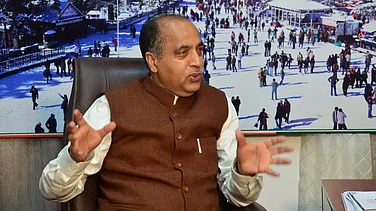Even as discussions abound on how the National Education Policy (NEP) 2020 has laid the foundation for India to emerge as a force to reckon with globally in the education sphere, we must focus our attention on a critical issue that often does not get the attention it deserves amid all the deliberations on teaching methodology, learning outcomes, etc.
And, that is, the negligible level of information available in the public domain on most of the Trusts/Societies and, by extension, the Trustees/Society members, running the three lakh-plus private schools in India where more than 8 crore students (equivalent to almost a quarter of the total US population) study.
Which, in turn, results in parents of school-goers often being unable to make a data and facts-driven evaluation of their own on the governance framework that exists in private schools where they intend to enrol their sons and daughters and forces them to leap of faith in this regard.
As things stand now, even finding the names of the Trusts operating private schools in different parts of the country being mentioned on the websites of these educational institutions is more the exception rather than the rule. What is rare is seeing the websites of private schools contain some bare details about their Trustees beyond just their names.
Somehow, there appears to be a hesitancy on the part of many Trusts running private schools to publicly reveal more about themselves to students and their parents from whom the educational institutions they manage demand complete transparency, including the sharing of confidential personal information. As if openness is only supposed to be a one-way street.
At any given point, for instance, private schools run by Trusts/Foundations/Societies, etc. together potentially have access to confidential personal data of up to 24 crore people (8 crore students plus their parents) but seldom do these institutions provide any clarity on the measures being taken to protect this data.
Time for reset
However, with the Covid-19 pandemic leading to questions being asked by several parents about whether the privately-run schools in whom they had reposed almost blind faith for providing quality education to their children are indeed worthy of that trust, persisting with the haziness around the Trusts that set them up could only accentuate the challenges for such educational institutions.
Instead, being more transparent about the Trusts that manage them could reduce the possibility of private schools having to contend with a likely trust deficit at a time when being perceived as a force for good is extremely important from a reputational point of view for every institution.
For the Trusts, also, voluntarily putting out more information about themselves could only enhance their credibility among all stakeholders in the turbulent period we currently live in. Doing so could demonstrate their commitment to openness, and, at the same time, allow them to prove to the external world that their interest in the education sector is driven solely by the desire to make a difference in the society.
Moreover, such an initiative could provide an excellent platform to highlight the reasons behind the presence of every Trustee in the educational Trusts connected with running private schools and the expertise that these individuals bring to the table.
For India to grow and prosper, the trustworthiness of its education service providers must be never called into doubt. It would be most unfortunate if this were to happen due to some privately run institutions trying to maintain a cloak of secrecy around the Trusts running these facilities.
[The author is Advisor at the Gurgaon-based advisory on communications and stakeholder advocacy R M Consulting https://rmconsulting.in. Views expressed are personal.]


























